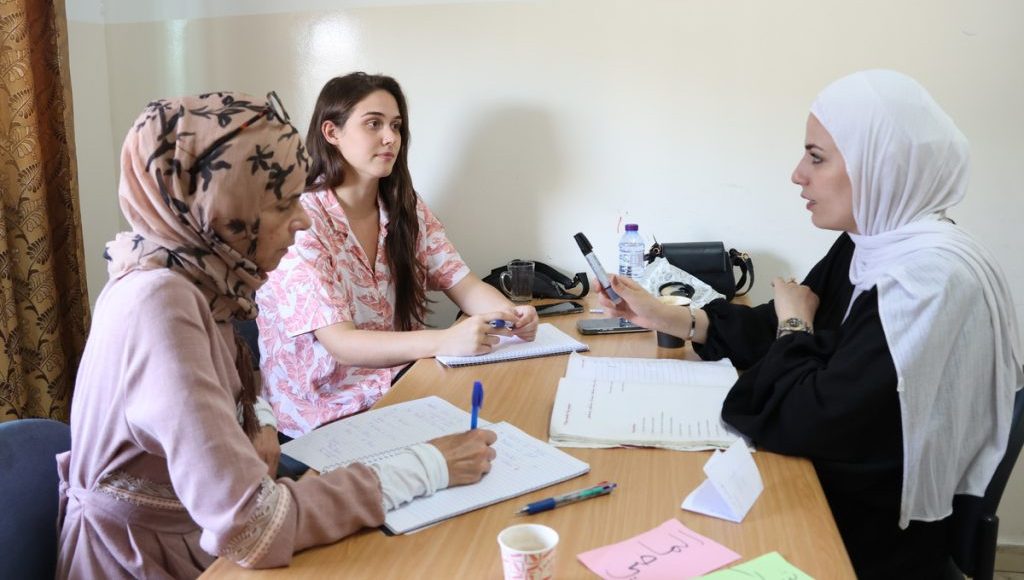Arabic immersion programs place learners in Arabic-speaking environments where they spend their days speaking the language with others. Students may live in furnished apartments in accessible neighborhoods with nearby shops, cafes, and public transport. These settings allow learners to apply their Arabic skills outside of the classroom and in everyday interactions. Here are five benefits of an Arabic immersion program:
1. Language Growth
Students can immerse themselves in the Arabic language by practicing and being exposed to it consistently. In an immersion program, they’ll learn to read signs and menus, ask questions, and make purchases at local markets. Exposure to native speakers in real-time conversations and listening to Arabic media, such as television programs and podcasts, helps enhance students’ listening skills. Students acquire vocabulary naturally as they learn terms and phrases used in real-life contexts. They absorb grammar and structure through repetition and experience, rather than memorization. The result is faster, deeper, and more lasting language proficiency.
2. Cultural Fluency
An Arabic immersion program helps students understand the Arabic culture by encouraging them to experience and participate in local traditions and daily life. Cultural workshops introduce students to various Arabic art forms, including calligraphy, mosaics, and traditional music. Students can also visit cultural sites, such as historical mosques, museums, and community centers, to see Arab heritage firsthand. Students in the programs will observe and participate in religious celebrations, local festivals, and holiday events. This helps them understand the values and social customs that shape the Arabic-speaking communities. Being immersed in cultural experiences helps learners understand language as part of a larger worldview.
3. Career Skills
The global job market has openings for individuals who have Arabic language proficiency and cultural competence. Immersion students develop skills that are appealing to employers working in international relations, education, the nonprofit sector, and other industries. Communicating respectfully and effectively across cultures is also useful for a career in healthcare, humanitarian aid, or community outreach. Immersion programs teach language and soft skills, like adaptability, empathy, and confidence, which are necessary for working in diverse teams within a global environment. Students who have completed immersion programs return with a stronger command of the language. They also gain a distinctive comprehension of the Arab world, which makes them stand out professionally.
4. Cognitive Development
Learning Arabic helps individuals develop their cognitive abilities. Arabic’s writing system moves from right to left and contains complex characters, and learning the system may strengthen students’ visual processing and attention to detail. Pronunciation practice helps individuals distinguish between sounds, and switching between languages may increase mental agility and problem-solving skills. While students experience cultural differences during their programs, they can also improve their communication and thinking skills.
5. Personal Connections
Immersion programs provide students with opportunities to build strong personal and academic connections. The shared experiences of visiting local markets, workshops, and city-wide celebrations help individuals form friendships that can thrive during and after the program. The group excursions to cultural and historical landmarks also create a sense of community among students. These moments make the Arabic language come alive, giving students the confidence and cultural empathy to speak it with their colleagues.
Enroll in an Arabic Immersion Program
Immersion programs include cultural activities and field trips that complement and enhance academic language learning. Some programs offer summer intensives and longer academic year experiences. Contact an Arabic language institution today to learn more about enrolling in an Arabic immersion program.

